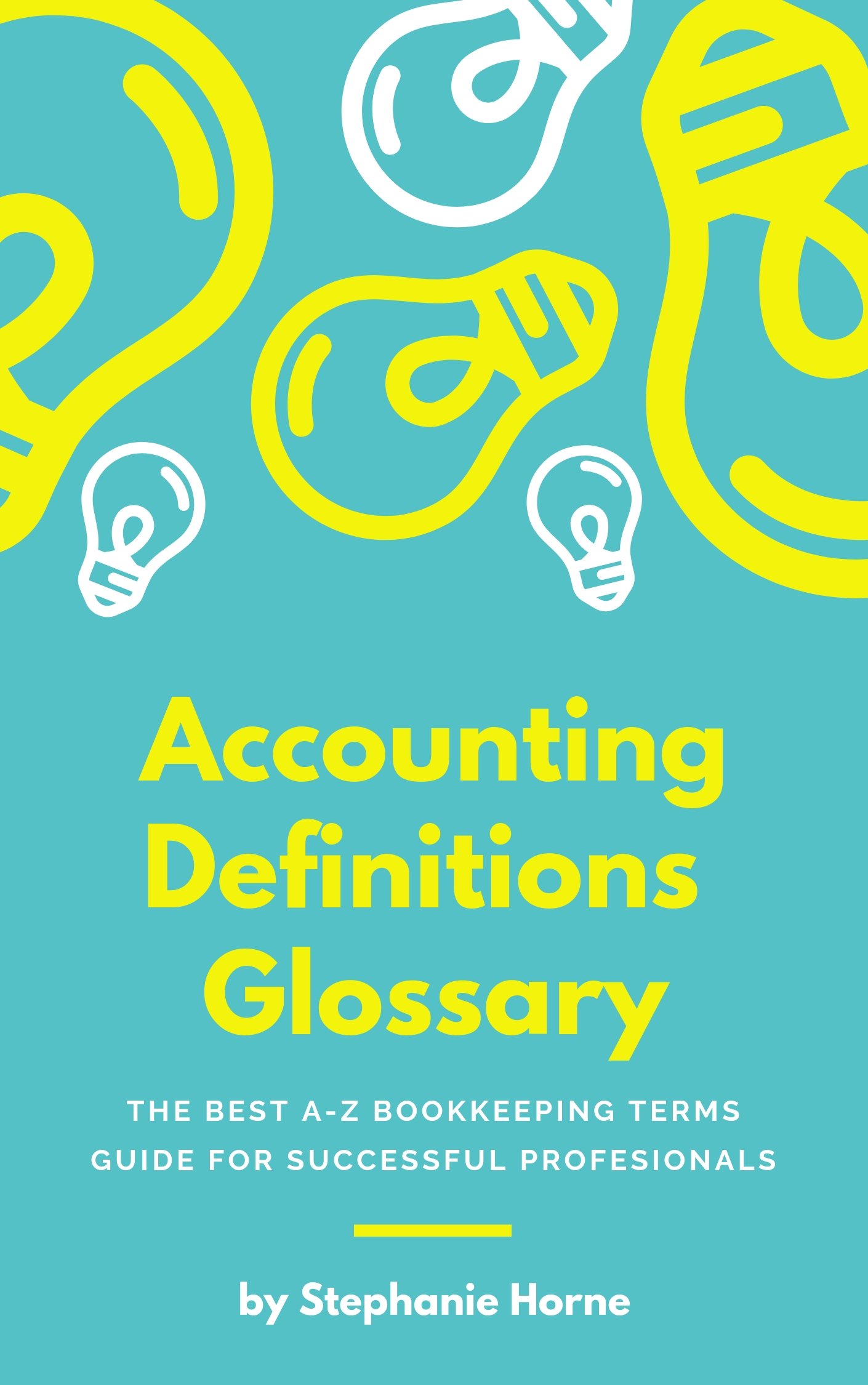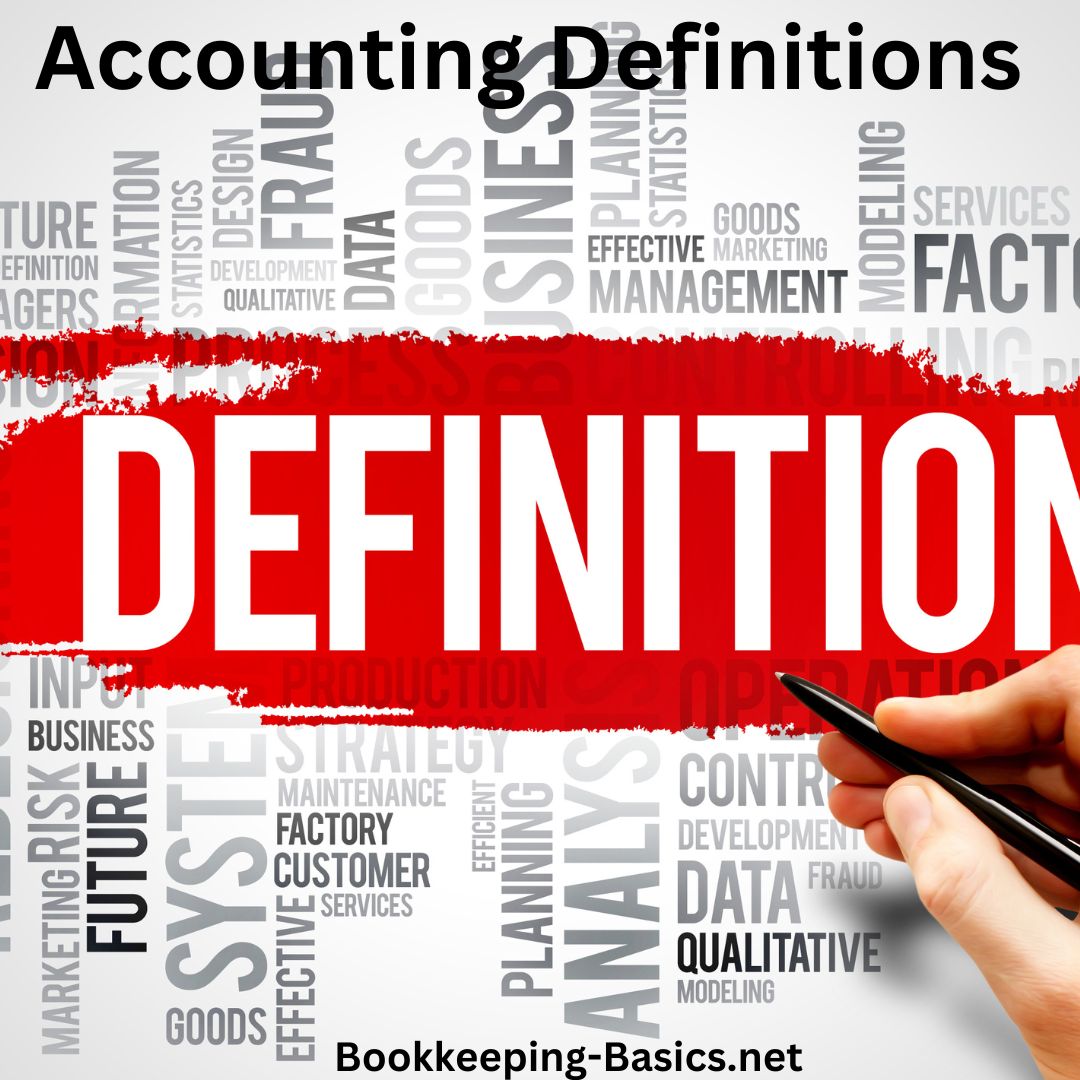- Home
- Definitions
- Accounting Definitions A
Accounting Definitions A
Bookkeeping Terms Starting With Letter A
Accounting Definitions A - There are hundreds of accounting definitions, financial meanings and bookkeeping terms here in my accounting terms glossary.
Use this as an accounting resource to help improve your knowledge of bookkeeping terms and accounting definitions starting with the Letter A.
Accounting Definitions A - Choose A Letter
Pick a letter to go directly to the accounting definitions and bookkeeping terms associated with that letter.
Accounting Definitions A - Site Search
Or use the Search Engine below to search the entire website for the accounting definition you are looking for.

Accounting Definitions - Glossary
Receive a full A-Z Bookkeeping Terms Glossary complete with each of the words you will find here all in one place on this free E-Book.
Accounting Definitions - Word Search
Also get these Accounting Definitions Word Search Puzzle Worksheets that are super fun for business owners, bookkeepers, accountants or anyone in the financial industry.
Accounting Definitions - Flash Cards
Get the entire set of 46 bookkeeping terms starting with the letter A found on this page in online flash cards that you can use as an interactive study guide.
Accounting Definitions A
Bookkeeping Terms Starting With The Letter A
Account:
An account, in the context of accounting, refers to a record or a specific category used to track and summarize financial transactions related to a particular aspect of a business or an individual's financial activities. It serves as a storage unit for financial information and provides a systematic way to organize and classify transactions.
Accountable:
Being accountable means taking responsibility for one's actions, decisions, and their consequences. It involves being answerable and liable for one's conduct and ensuring that obligations and commitments are fulfilled.
A professional who specializes in the field of accounting, which involves the systematic recording, analyzing, interpreting, and reporting of financial transactions and information. Accountants are trained to handle various financial tasks and provide financial expertise to individuals, businesses, organizations, and government entities.
The systematic process of recording, analyzing, interpreting, and communicating financial information about an individual, business, or organization. It involves collecting, organizing, and summarizing financial data to provide insights into the financial performance, position, and cash flows of the entity. Accounting serves as a language of business, enabling stakeholders to understand and evaluate the financial health and activities of an entity.
Accounting Equation:
The accounting equation, also known as the basic accounting equation or the balance sheet equation, is a fundamental principle in accounting that illustrates the relationship between a company's assets, liabilities, and equity. It provides a framework for understanding the financial position of an entity and ensures that the equation remains in balance.
The accounting equation is expressed as follows: Assets = Liabilities + Equity
Accounts Payable:
Accounts Payable refers to the outstanding debts or obligations that a business owes to its suppliers or vendors for goods and services received on credit. It is a liability on the company's balance sheet and represents the amount owed by the company to its creditors.
Accounts Receivable:
Accounts Receivable refers to the outstanding payments that a business is owed by its customers for goods or services provided on credit. It is an asset on the company's balance sheet and represents the amount that is expected to be received from customers in the future.
Accredit:
To officially recognize or certify the competency, credibility, or quality of a person, organization, program, or institution.
Accrual Basis:
Accrual basis refers to an accounting method in which transactions and events are recorded when they occur, regardless of when the associated cash flows take place. Under the accrual basis of accounting, revenues and expenses are recognized and recorded in the financial statements when they are earned or incurred, regardless of the timing of cash receipts or payments.
Accounting Definitions A:
Accrue:
To accumulate or build up over time. In the context of accounting and finance, it refers to the recognition of revenues, expenses, or other financial items as they are earned or incurred, even if the related cash transactions have not yet taken place.
Accrued Expenses:
Accrued expenses, also known as accrued liabilities or accrued payables, are expenses that a company has incurred but has not yet paid or recorded in its accounting books. These expenses represent obligations that have been accrued or accumulated over time but are not yet settled by making cash payments.
Accrued Income:
Accrued income, also known as accrued revenue or outstanding revenue, refers to income that has been earned by a business but has not yet been received or recorded as a transaction in the accounting records. It represents revenue that has been recognized before the associated cash has been received.
Accrued liabilities, also known as accrued expenses or accrued payables, are obligations or debts that a business has incurred but has not yet paid or recorded in the accounting system. They represent expenses that have been recognized and are due to be paid in the future.
Accumulate:
To gather or collect over time, resulting in an increasing quantity or size. It refers to the process of gradually amassing or building up something, whether it is physical objects, data, knowledge, or wealth.
Accurate:
Refers to the quality of being correct, precise, or exact. It implies that something is free from errors, mistakes, or deviations, and represents the true and intended state or value of a particular thing.
Achieve:
To successfully accomplish or attain a desired goal, objective, or outcome. It refers to the act of reaching a specific target or result through effort, determination, and the completion of necessary tasks or actions.
Acknowledge:
To recognize, admit, or accept the existence, truth, or validity of something or someone. It involves showing awareness or appreciation of a person, situation, idea, or fact. Acknowledgment can be expressed through words, actions, or gestures.
Acquire:
To gain or obtain something, typically through effort, action, or exchange. It involves acquiring possession or control over something, whether it is physical, intellectual, or abstract.
Acquisition:
The process of acquiring or obtaining control, ownership, or possession of another company, business, asset, or resource. It involves one entity, known as the acquirer or buyer, obtaining another entity, known as the target or seller, through various means, such as purchase, merger, or takeover.
Activate:
The process of causing something to become active, operational, or functional. It involves initiating or starting a system, process, function, device, or state that was previously inactive or dormant.
Actuary:
A professional who specializes in assessing and managing risks and uncertainties, particularly in the fields of insurance, finance, and pensions. Actuaries use mathematical and statistical techniques to analyze and predict potential financial impacts and help organizations make informed decisions.
Adjust:
To modify, alter, or change something to achieve a desired or more suitable state or condition. It involves making necessary adaptations or corrections to ensure proper alignment, balance, or functionality.
Adjusting Entries:
A type of accounting entry made at the end of an accounting period to bring accounts up to date and ensure the accuracy of financial statements. It is necessary because certain transactions or events may not have been recorded or properly reflected during the regular course of business operations.
Administer:
To manage, supervise, or oversee the execution of tasks, responsibilities, or resources. It involves the coordination and implementation of activities to ensure efficient operation, proper functioning, or compliance with established procedures and policies.
Administrative Expenses:
The costs incurred by a business or organization in the management and support of its operations. These expenses are not directly associated with the production of goods or services but are necessary for the overall administration and functioning of the entity.
Advice:
Guidance, recommendations, or suggestions given to someone to help them make informed decisions, solve problems, or navigate a particular situation. It involves sharing expertise, knowledge, or personal insights to provide direction or assistance in a specific matter.
Affidavit:
A written statement or declaration made voluntarily under oath or affirmation, often used as evidence in legal proceedings. It is a legal document that presents facts, information, or testimony from the perspective of the individual making the statement, known as the affiant.
A person, organization, or entity that is associated with or connected to another entity, typically through a contractual or ownership relationship. The affiliate is usually separate and distinct from the main entity but shares a certain level of common interest, control, or financial relationship.
Aggregate:
A collection or combination of things or elements that are considered as a whole. It represents the total or sum of individual components. For example, in statistics, aggregate data refers to summarized or grouped data that provides an overview or summary of a larger dataset.
Agreement:
A mutual understanding or arrangement reached between two or more parties regarding a particular matter. It represents a consensus or meeting of minds on the terms, conditions, rights, obligations, or actions to be undertaken by the involved parties.
Algorithm:
A step-by-step procedure or set of rules designed to solve a specific problem or perform a particular task. It is a precise and well-defined sequence of instructions that can be followed to accomplish a desired outcome.
Allowance:
A sum of money given to someone regularly, often as a form of financial support or to cover specific expenses.
Amend:
To make changes, modifications, or additions to a document, law, contract, or other written or formalized text. It involves revising or altering the content, language, or provisions of the original document to reflect updated information, correct errors, or improve clarity.
Amendment:
A formal change or addition made to a document, law, constitution, agreement, or other written text. It involves modifying, revising, or adding provisions to the original document in order to update, clarify, or enhance its content or scope.
Amortization:
The gradual reduction of a debt or financial obligation over time through scheduled payments or installments. It involves the systematic repayment of the principal amount borrowed or the cost of an asset over a specified period, along with the payment of interest charges.
Amortization Expense:
The cost associated with spreading out the value or cost of an intangible asset or long-term liability over its useful life. It represents the gradual reduction or allocation of the asset's value or liability's amount as an expense in the financial statements.
Amortize:
To gradually reduce or pay off a debt or financial obligation over a specific period through regular payments or installments. It involves spreading out the repayment of a loan or the cost of an asset over time, typically with interest.
Amount:
A quantity, measurement, or value of something. It is a broad term that can be used in various contexts and can encompass different types of numerical or quantitative expressions.
Analysis:
The process of examining or studying something in detail to understand its components, structure, characteristics, or relationships. It involves breaking down complex information or data into smaller parts, identifying patterns, drawing conclusions, and gaining insights.
Analize:
To examine, evaluate, or study something in detail to understand its components, structure, characteristics, or relationships. It involves breaking down complex information or data into smaller parts, systematically examining those parts, and drawing conclusions or gaining insights from the findings.
Apparent:
Something that is readily visible, evident, or easily perceived. It indicates that a certain fact, quality, or situation is clearly noticeable or seems to be true based on available information or observations.
Assess:
To evaluate, appraise, or judge the value, quality, or condition of something or someone. It involves gathering information, analyzing it, and forming an opinion or making a judgment based on the assessment criteria.
Assets:
Economic resources owned or controlled by an individual, company, or organization that have measurable value and the potential to provide future economic benefits. Assets can include tangible items, such as cash, inventory, equipment, and property, as well as intangible items, such as intellectual property, patents, trademarks, and goodwill.
Authority:
The power or right to make decisions, give orders, enforce rules, or influence others. It is the legitimate ability or control that an individual or entity possesses to exert influence or control over others and make decisions that are binding or respected within a particular context or domain.
Authorize:
To give official approval, permission, or consent for someone to do something or to grant someone the power or right to act on behalf of another person or entity. When someone is authorized, they have the legal or official authority to perform a specific action or carry out certain responsibilities.
Axiom:
A fundamental, self-evident statement or principle that is accepted without requiring proof or justification. It is a starting point or a basic assumption that forms the foundation of a system of thought or a branch of knowledge. Axioms are considered to be true and universally valid within a given context or framework.
Thank you for visiting my Accounting Definitions A page to find bookkeeping terms starting with the letter A. Please feel free to contact me if you would like further assistance.
Accounting Definitions Letter A - Crossword
Questions & Answers
- Accounting News Article Contributions
- Accounts Payable Questions
- Accounts Receivable Questions
- Bookkeeping Articles
- Balance Sheet Questions
- Bookkeeping News Article Contributions
- Bookkeeping Questions and Answers
- Chart Of Accounts Questions and Answers
- Funny Accounting Jokes
- Income Tax Deductions Questions
- Income Tax News Article Contributions
- Investment Questions
- Profit And Loss Statement Questions
- Your Testimonials
Accounting & Bookkeeping Supplies
- Basic Bookkeeping For Dummies
- Bookkeeping Books
- Bookkeeping Business Software
- Bookkeeping Deals
- Bookkeeping Ledger
- Bookkeeping Software
- Bookkeeping Supplies
- Bookkeeping Tutorials
- Cell Phones
- Computers
- Electronic Supplies
- Finance Magazines
- Office Equipment
- Office Furniture
- Office Supplies
- Quickbooks Accounting Software
Please subscribe to my monthly newsletter, Bookkeeping Basics E-zine. It tells you every month about the new information that I have added, including some great tips and advice from myself and other Bookkeeping Basics readers.
Like Bookkeeping-Basics.net?
- Home
- Definitions
- Accounting Definitions A



















New! Comments
Have your say about what you just read! Leave me a comment in the box below.